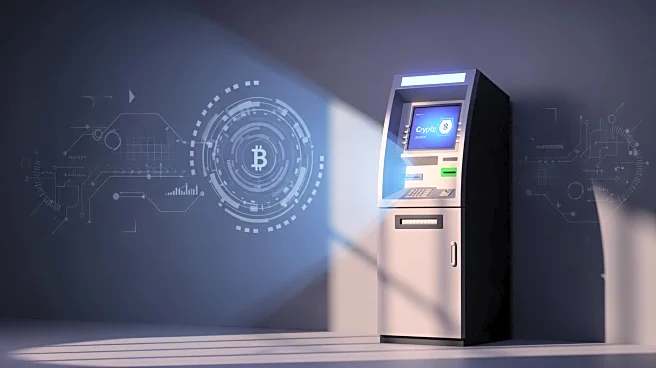What's Happening?
A recent investigation by CNN has highlighted the prevalence of scams associated with crypto ATMs in the United States. These machines, which allow users to exchange cash for cryptocurrencies like Bitcoin,
have been linked to numerous fraud cases. The investigation revealed that a single ATM was tied to at least a dozen potential fraud cases, indicating a widespread issue. Companies operating these ATMs have been accused of profiting from scams, although they dispute these allegations and claim to have measures in place to protect consumers. The report also noted that scammers exploit the general public's lack of knowledge about crypto ATMs, often targeting elderly individuals by posing as law enforcement or government officials demanding payments through these machines.
Why It's Important?
The rise in crypto ATM scams has significant implications for consumer protection and regulatory oversight in the U.S. The ease with which scammers can use these machines to transfer large sums of money overseas poses a challenge for law enforcement, as recovering funds becomes difficult once they are converted to cryptocurrency. This situation highlights the need for stricter regulations and consumer education to prevent such scams. The financial losses from these scams are substantial, with the FBI reporting that Americans lost approximately $240 million to crypto ATM scams in the first half of the year. The issue also underscores the broader challenges of regulating the rapidly evolving cryptocurrency industry.
What's Next?
In response to the growing concerns, more than a dozen states have enacted laws to curb crypto ATM scams, including imposing daily transaction limits. However, the effectiveness of these measures is still under debate, as some states have adopted regulations influenced by the crypto ATM industry itself, which may lack sufficient consumer protections. At the federal level, discussions about tighter regulations continue, although progress is slow. The ongoing regulatory debates are expected to persist, as stakeholders balance the need for innovation in the crypto space with the necessity of protecting consumers from fraud.









